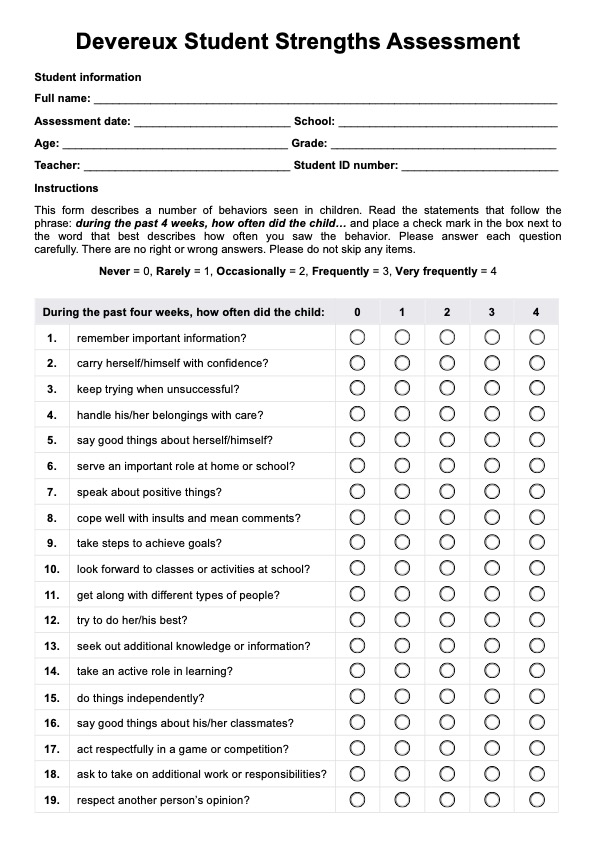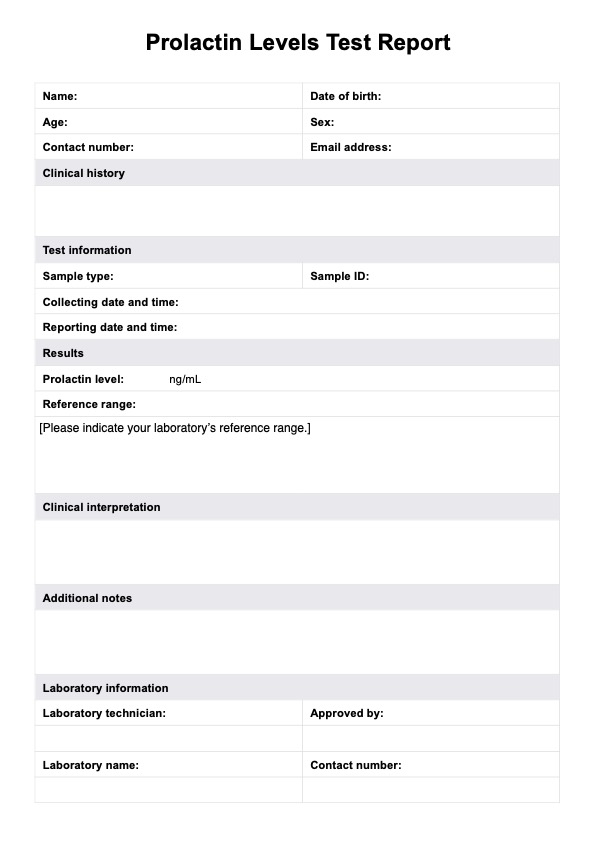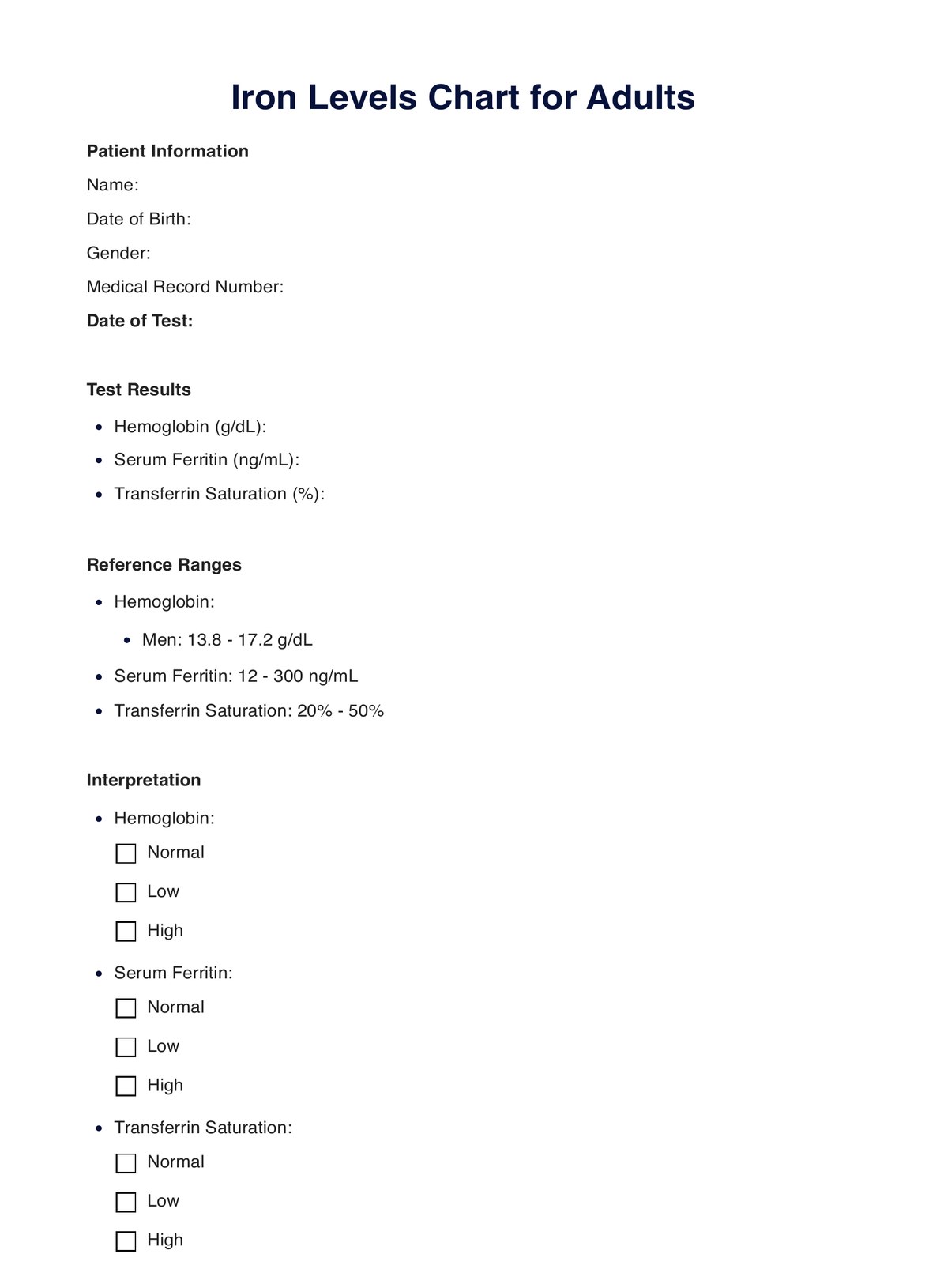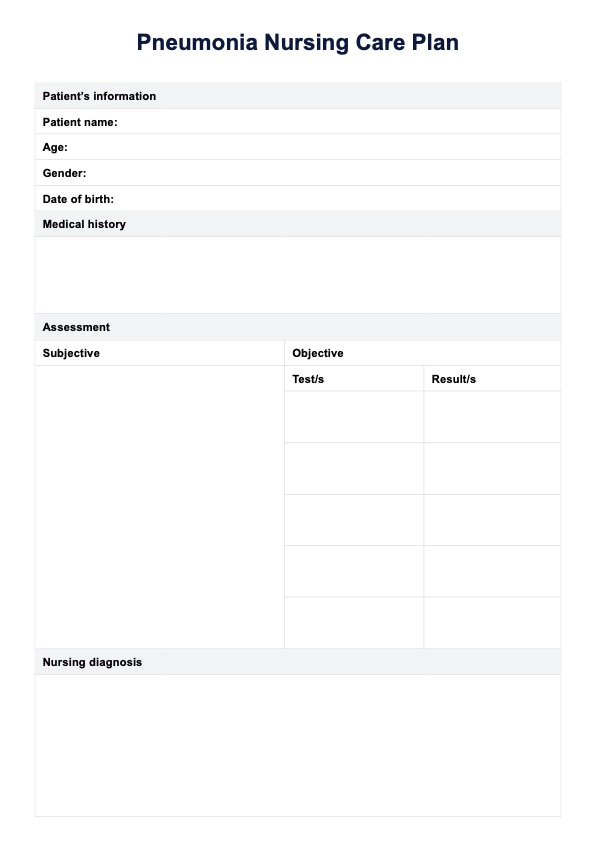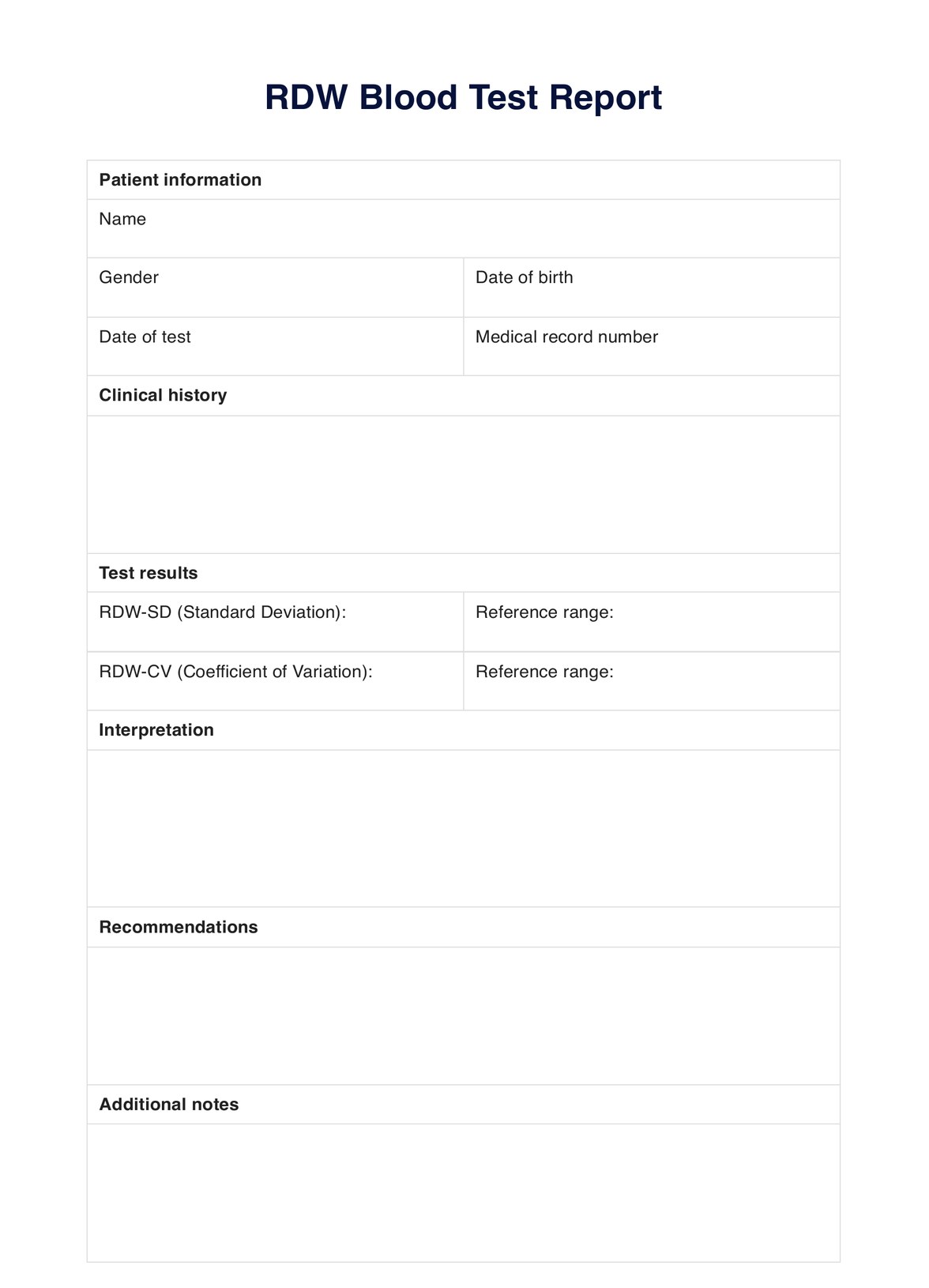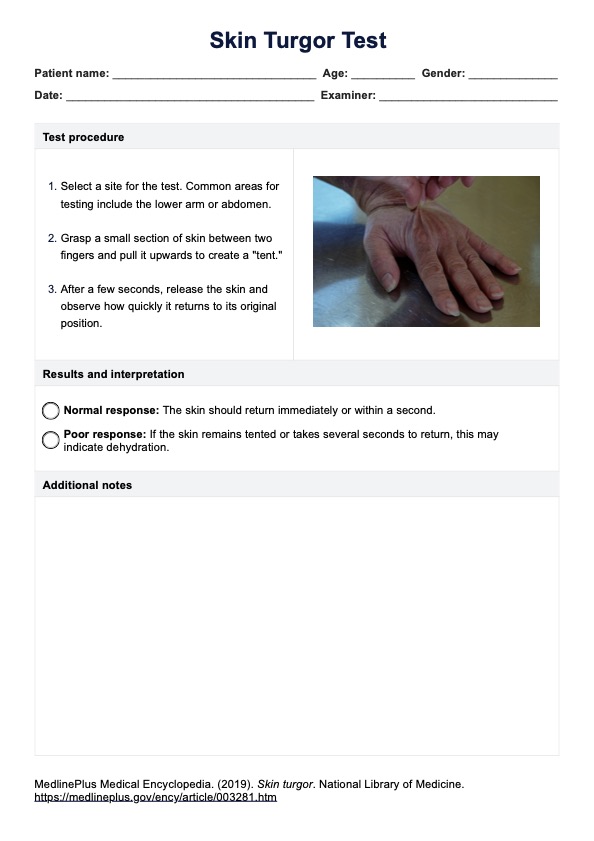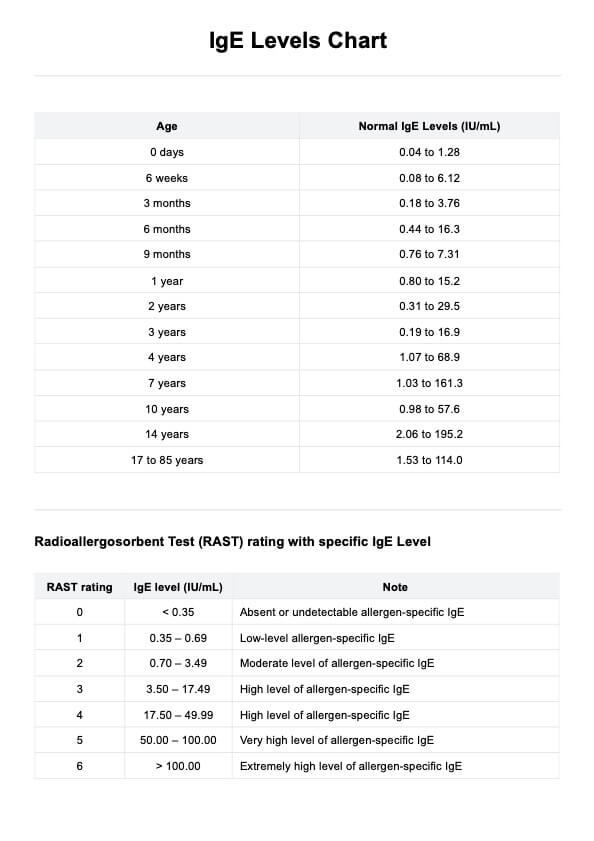Parental Consent Form
Empower your practice and protect your patients with a parental consent form. Ensure legal compliance and gain peace of mind. Get started now.


What is a Parental Consent Form?
A Parental Consent Form is a crucial document utilized to obtain permission from a legal guardian or parent for various activities involving a minor. This form ensures that individuals responsible for a child have granted permission for their participation in specific events, travel, medical treatment, or extracurricular activities. It serves as a legal safeguard, providing a record of informed consent and contact information for emergency purposes.
Many individuals and organizations such as healthcare providers, schools, sports teams/clubs, non-profit organizations, and summer camps offer a free consent form for parents template that can double as a child medical consent form to streamline this process. It may be utilized for diverse scenarios such as medical procedures, minor travel consent, sports team participation, or summer camp engagement.
Parent consent forms typically include sections for patient information, emergency contact details, clauses related to promotional materials featuring the child, specifics about the activity or event, potential risks involved, and any medical decisions that may need to be made in case of an emergency. In certain cases, the parental medical consent form may also include the child's medical history, especially if asking permission for healthcare-related events.
Aside from those, the parental consent letter or form also specificies whether one or both parents or legal guardians need to grant permission and should be signed and dated accordingly. Additionally, for activities outside the school premises or involving third-party organizations, the parental consent forms may require notarization by a notary public for added legal validity.
Parental Consent Form Template
Parental Consent Form Example
How does this Parental Consent Form work?
A Parental Consent Form is a legal document that outlines the activity/program/event details and provides the parent or legal guardian's consent for their child's participation. Here is a step-by-step guide on how to use this form:
Step 1: Identify the child and parent/legal guardian
The form requires the child's name, date of birth, parent or legal guardian's name, address, phone number, and email.
Step 2: Specify the activity/program/event details
The form should include the name of the organization hosting the activity/program/event, as well as the the name, dates, and times of the activity/program/event.
Step 3: Acknowledge the risks
The form should acknowledge that the child's participation in the activity/program/event is voluntary and that certain risks are associated with it. The parent or legal guardian should agree to assume these risks and release the organization and its officers, employees, and agents from any liability, claims, or damages arising from their child's participation.
Step 4: Authorize medical treatment
The form should authorize the organization to obtain medical treatment for the child in an emergency. The parent or legal guardian should understand that every effort will be made to contact them or the emergency contact listed in the event of an emergency.
Step 5: Sign and date the form
The parent or legal guardian should read and understand the contents of the parental consent form and agree to its terms by signing and dating it. An optional witness signature and date can also be included.
When to use a Parental Consent Form?
The utilization of a medical parental consent form or parent consent form for minors emerges as a pivotal measure, safeguarding healthcare providers and their young charges. Given its importance, here are situations where one must deploy these forms:
Activities participation
Parental consent forms stand as guardians of a child's participation in various activities, spanning sports, field trips, and extracurricular pursuits. The meticulous documentation ensures that every adventure is embarked upon with the express approval of a responsible guardian.
Medical treatment safeguards
Parental consent becomes paramount when medical interventions extend beyond emergency scenarios, such as routine vaccinations. These forms bridge communication and understanding between healthcare providers, parents, and the child.
Media release assurance
In the vibrant landscape of media activities, be it interviews or captivating photo shoots, parental consent forms become the silent protectors, ensuring that a child's images or information are disseminated only with explicit permission.
Research study ethical anchoring
For those involved in research studies, parental consent forms serve as ethical anchors, securing permission for a child's participation and underscoring the importance of transparent communication between researchers and guardians.
School documents integrity
Within the educational sphere, parental consent is a prerequisite for the release or access of a student's academic records. These forms uphold the integrity of sensitive information, acknowledging the role of parents in educational decisions.
Travel permission assurance
Facilitating a child's travel without their legal guardian necessitates a Parental Consent Form. In granting permission, these documents become guardians of trust, ensuring the child's journey is enriching and sanctioned by those entrusted with their care.
Benefits of Parental Consent Form
Utilizing a free Parental Consent Form or parental permission form in healthcare settings yields several indispensable benefits that contribute to overall efficiency, compliance, and patient care within a professional context.
Legal compliance and informed consent
A parental permission form is a legal document that ensures healthcare providers obtain informed consent from parents or legal guardians before administering medical treatments or procedures to minors. This compliance with legal and ethical standards is crucial for maintaining the integrity of healthcare practices.
Risk mitigation
By explicitly outlining the nature of the medical treatment or intervention, potential risks, and alternative options, the parental permission form acts as a risk mitigation tool. This transparent communication helps health experts manage potential complications effectively and minimizes legal liabilities.
Emergency preparedness
The form includes essential contact information, enabling healthcare professionals to reach parents or guardians in emergencies swiftly. This is vital for prompt decision-making and ensures the child receives the necessary medical attention without delay.
Efficient record-keeping
Parental consent forms facilitate organized and systematic record-keeping. By documenting consent details, healthcare providers can easily retrieve and reference this information when needed. This enhances the overall efficiency of administrative processes and contributes to comprehensive patient management.
Enhanced communication
The process of obtaining parental consent fosters communication between healthcare providers and parents. This exchange of information ensures that parents are well-informed about the proposed medical interventions, creating a collaborative approach to the child's healthcare and well-being.
Respect for family dynamics
Implementing a Parental Consent Form reflects a respect for family dynamics and acknowledges the role of parents or legal guardians in making decisions for their children. This collaborative approach builds trust between healthcare professionals and families, fostering a positive, patient-centered healthcare environment.
Commonly asked questions
A Parental Consent Form is essential because it protects the organization or individuals organizing the activity from legal issues or liability. It also ensures parents are informed about their child's participation and can make informed decisions.
A parent or legal guardian of the child must sign a Parental Consent Form. It is essential to ensure that the signature is genuine and the parent is aware of the form's contents.
A Parental Consent Form should include the name and age of the child, the name and contact information of the parent or legal guardian, the name and contact information of an emergency contact, and a clear description of the activity or event. It should also include any risks associated with the activity and any necessary medical information or authorization.


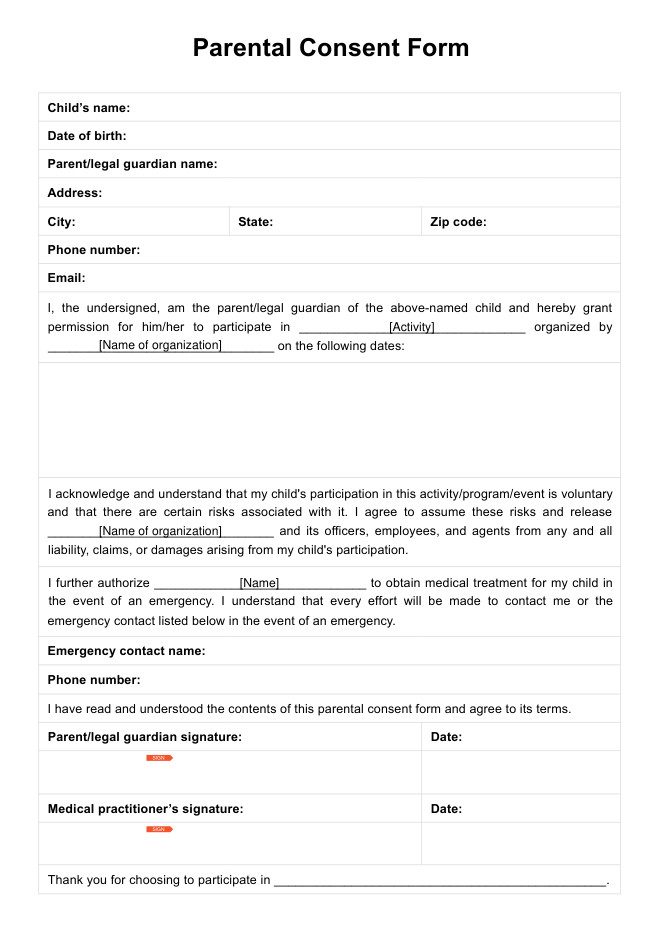
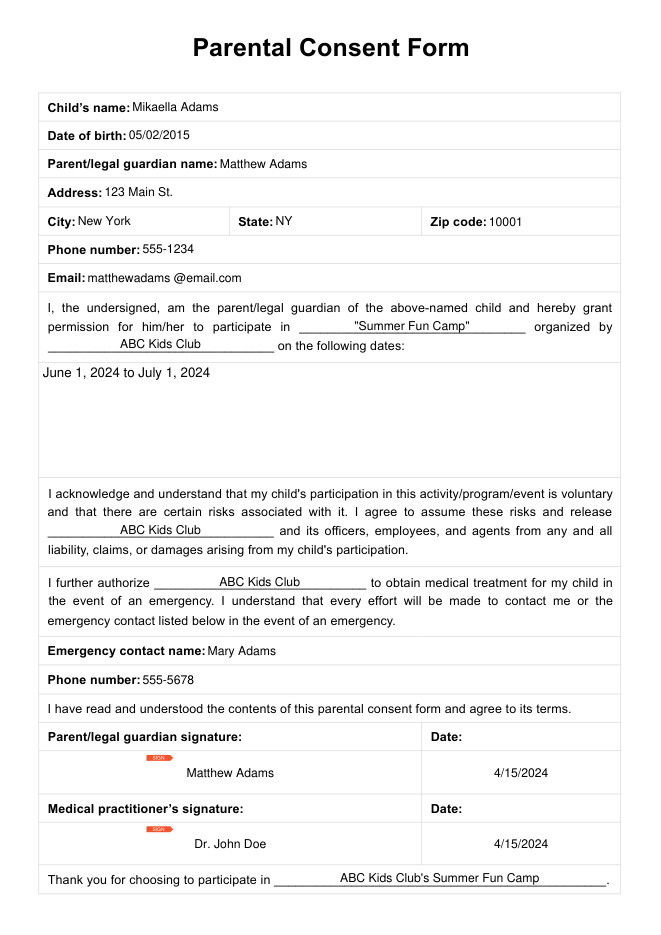




















-template.jpg)



































